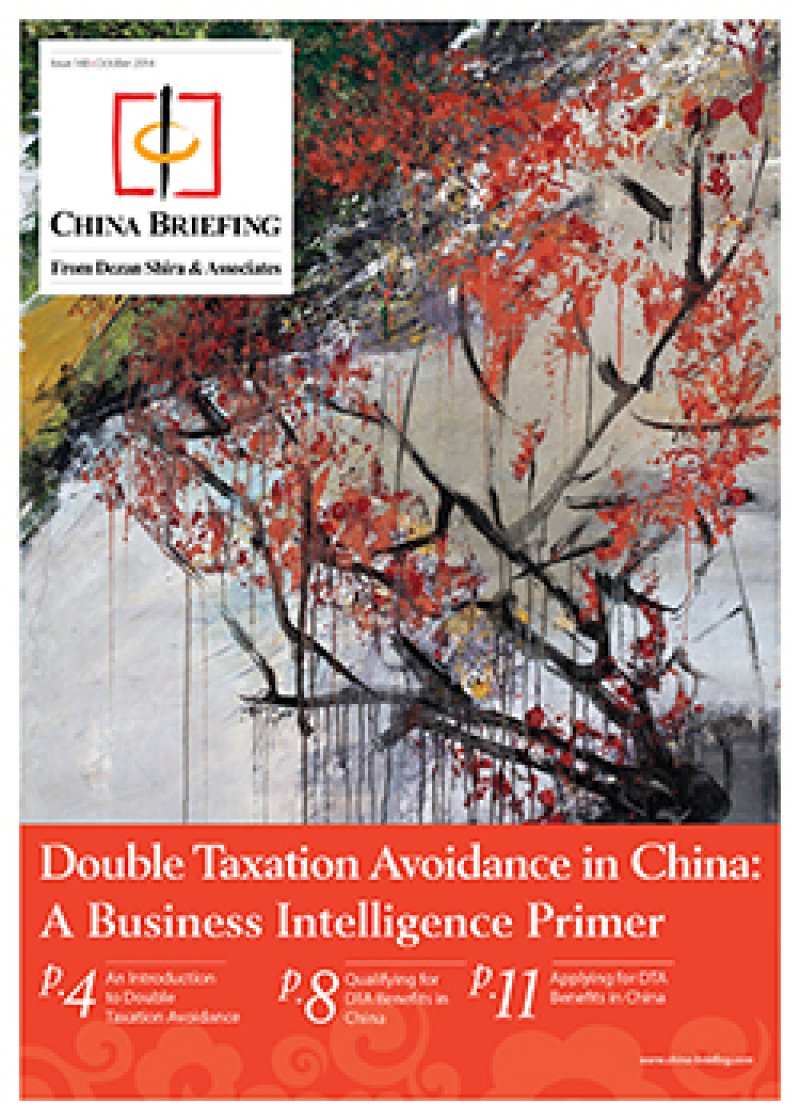
Our collection of resources based on what we have learned on the ground
Resources
Q&A
Welche Schwierigkeiten werden in China in der Zukunft auftreten?

- October 2014
- Free Access
Die Ein-Kind-Politik in China hat große Auswirkungen auf den Arbeitsmarkt, da dadurch der Nachschub an jungen und kostengünstigen Arbeitskräften stark abnimmt. Folglich steigt das Mindesteinkommen jährlich um 12,6 Prozent, und...
Q&A
Welche Vorteile bietet eine Investition in China oder Asien?

- October 2014
- Free Access
Unternehmen die in China bzw. Asien investieren genießen die Vorteile von verschiedenen Steuerabkommen, erhalten minimale Unternehmenssteuerpflicht mit der Option zur späteren Dividendenrückführung und riskante Investitionen k...
infographic
Auswertung der aufstrebenden Asienm�rkte: China, Indien und Vietnam

- October 2014
- Free Access
Die Infografik veranschaulicht Vorteile und Nachteile von China, Indien und Vietnam.
infographic
Unternehmenssteuern in China und Vietnam

- October 2014
- Free Access
Die Infografik vergleicht Körperschaftssteuer, Mehrwertsteuer und Dividendensteuer zwischen Vietnam und China.
infographic
Unternehmenssteuern in Indien und China

- October 2014
- Free Access
Die Infografik vergleicht Körperschaftssteuer, Mehrwertsteuer und Dividendensteuer in Indien und China.
Q&A
Was beinhaltet der Vertrag von ASEAN mit China?

- October 2014
- Free Access
Die chinesische Regierung fördert den Handel mit ASEAN, durch die Eröffnung eines China-ASEAN Handelsbüros, um die Präsenz von ASEAN in China zu stärken.
Q&A
Welche Handelsbeziehung hat Vietnam zu China?

- October 2014
- Free Access
Die Handelsbeziehung zwischen beiden Ländern wird immer wichtiger und nimmt mehr an Wert zu, da vor allem durch den ASEAN-China Freihandelsabkommen (mit Vietnam als Kernmitglied) der Gesamthandel von 500 Mrd. USD werden wird. Zwischen beiden ...
Q&A
Welche politischen Probleme gibt es zwischen Vietnam und China?

- October 2014
- Free Access
Vietnam ist noch aufgrund des Krieges 1979 und den anhaltenden territorialen Auseinandersetzungen misstrauisch auf sein Nachbarland und bleibt noch politisch vorsichtig. Außerdem gibt es noch Streitigkeiten wie z.B. dass Vietnam den neuen ch...
Q&A
Wie sind die L�hne in Vietnam im Vergleich zu China?

- October 2014
- Free Access
Vietnamesische Gehälter sind etwa ein Drittel der Gehälter in Südchina, die wie in ganz China jährlich um 22 Prozent steigen.
magazine
Double Taxation Avoidance in China: A Business Intelligence Primer

- October 2014
- Members Access
In our twenty-two years of experience in facilitating foreign investment into Asia, Dezan Shira & Associates has witnessed first-hand the development of Chinaâs double taxation avoidance mechanism and established an extensive library of resource...
presentation
Dealing with Intercompany Expenses in China

- September 2014
- Free Access
A resource from Dezan Shira & Associates giving advice on initial setup costs for a foreign invested enterprise (FIE) and on the issue of permanent establishment related to staff assignment and on payments of expatriate salaries to overseas.
presentation
Taxation & Accounting: What SMEs Should Know for the Year 2013-2014

- September 2014
- Members Access
This presentation by Richard Cant, Regional Director, will address a number of taxation and accounting related topics for SMEs in China.
Enquire for more information about our services, and how we can help solve challenges for your organization
Contact UsOur Clients
Discover our esteemed global clients across diverse sectors. We believe in providing our clients with exceptional service and a commitment to being their partner for growth in Asia.
See what our clients say about us



























